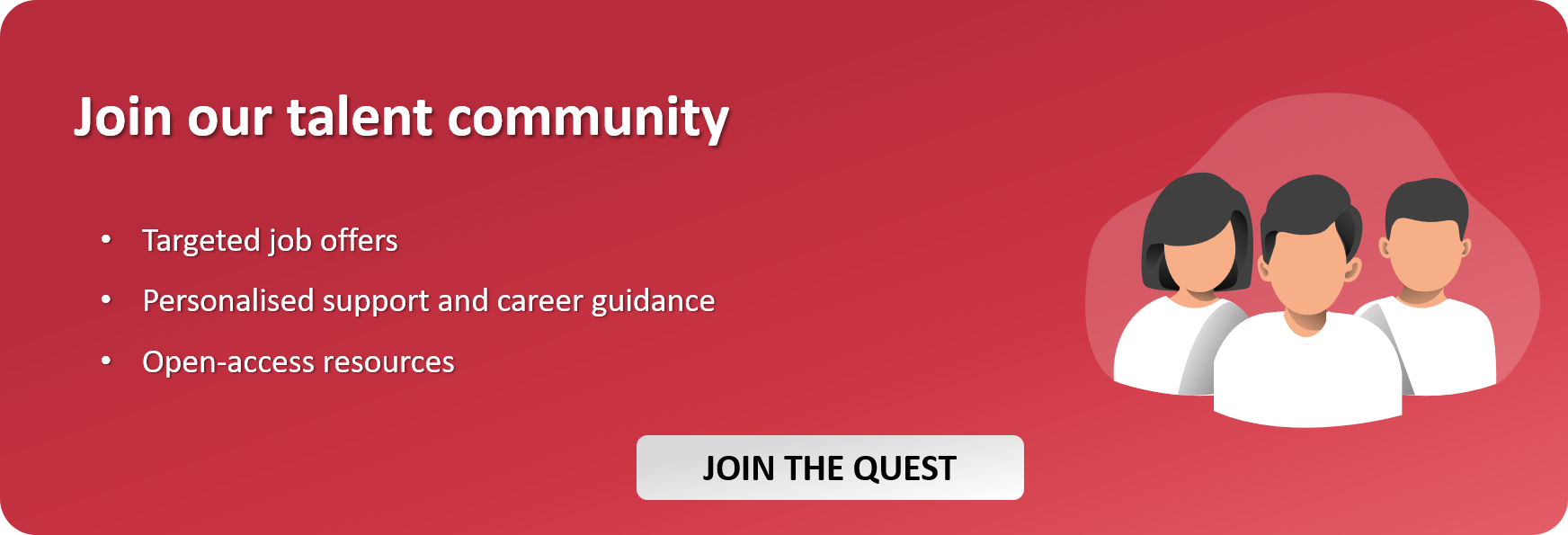Use our template to create a compelling and comprehensive AngularJS Developer job description to attract top talent.
With the appearance of new frameworks, the professions around web development are more and more specific and a large number of professionals specialize in a particular technology. Among the different possible specializations is the front-end developer AngularJS.
AngularJJ is one of the JavaScript frameworks. It is a free and open-source framework created by Google in 2009 and is used for the development and creation of web applications. It is a complete, solid and homogeneous framework that is one of the most popular JavaScript frameworks, being used all over the world by many companies.
But what is the role of the AngularJS developer? Discover in this job description their missions, skills, training and salary.
Interested in exploring more roles within tech? Take a look at the role of the C/C++ Developer
The profession of the AngularJS developer
Professionals choosing to become web developers have the possibility of focusing on Front-End Back-End or Full-stack development; in a particular programming language or in the use of a specific framework in order to become an expert.
The profession of AngularJS developer is part of front-end development. That is everything related to the design of the user experience of a web page or application.
The AngularJS developer is a specialist in the JavaScript “event programming” language and in particular its AngularJS framework. This is one of the rarest professionals in the field of front-end development.
The AngularJS developer works with JavaScript, but their work doesn’t end with just playing around with this programming language. They are in charge of all types of front-end web development. With their main role being the creation of a Single Page Application (SPA) linked to a RESTful API. They also bring their mastery in the validation of communications between the Front AngularJS application and the RESTful API.
Required Skills
Expertise in the ecosystem
The AngularJS developer is an expert in the AngularJS framework, so they must, of course, know and fully understand all of the specific components of the framework. But that’s not all. This professional must master front-end development and have a perfect knowledge of the JavaScript event programming language. But also mastery of the HTML and CSS languages.
In order to carry out their missions, it is important that these developers have knowledge of Bootstrap and know how to manage interactions with third-party systems via APIs (Twitter, LinkedIn, Facebook, Google Maps, etc.).
In addition, if they have in-depth knowledge of Agile best practices and are able to offer an effective development methodology, their market value will only be greater.
Curiosity and passion
Because of their job, the AngularJS Developer must be passionate about new technologies. They must enjoy logic and have a sense of design. It is important that they are curious and enjoys learning and discovering new things continuously., as technologies such as front-end frameworks, tools and best practices evolve very quickly and constantly. It is therefore essential to be curious, to constantly be on the lookout for information and stay informed about the latest releases and updates so as not to fall behind or be overwhelmed.
Salary
The salary varies greatly depending on the company, region and level of experience. The salary of a junior AngularJS Developer typically starts around €35,000 annually. However, based on experience, this salary can very quickly increase up to €75,000 per year. On the freelance side, the average daily rates vary between 300 and 600 euros.
AngularJS Developer in training
There are several ways to become an AngularJS developer. This professional can pursue a university degree specializing in computer science and then complete a master’s degree in IT. They can also go to engineering school, specialising in computer science and in this framework via online training.
Discover all the web development programming skills and professions
















